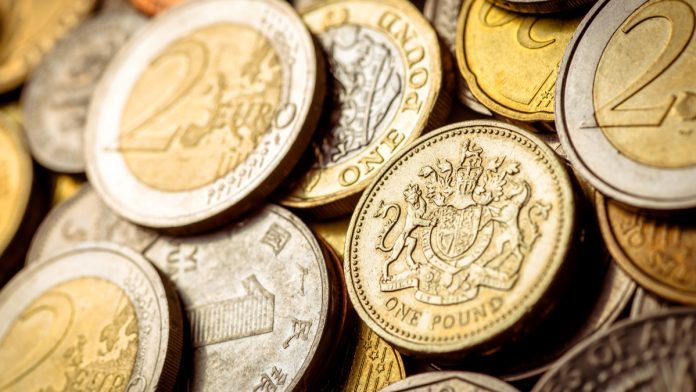- Pound (GBP) slips from highs as Brexit optimism fades and on mixed labour market data
- UK inflation expected to be flat mom in May
- Eurozone inflation to narrowly avoid deflation
- At 05:15 UTC, Pound Euro exchange rate (GBP/EUR) trades
The Pound is once again heading lower after a rare upbeat session on Tuesday. The Pound Euro exchange rate settled on Tuesday +0.3% at €1.1165, after dropping from the 3 day high of €1.1222 reached earlier in the session.
At 05:15 UTC, GBP/EUR is trading -0.1% at €1.1145 as investors look ahead to the release of UK and Eurozone inflation data.
Thee Pound traded on the front foot in the previous session buoyed by news that the EU and the UK are committed to approaching the next round of Brexit trade talks with energy to avoid an disorderly Brexit come the end of the year.
On the macro data front, the Pound also found support from a mixed UK labour market report, which showed that unemployment unexpectedly remained steady at multi-decade lows of 3.9% in the threw months to April, despite the coronavirus lockdown.
Today, risk sentiment has eased, and investors are looking ahead to UK inflation data, as measured by consumer price index. Analysts are expecting CPI to be 0% in May compared to a year earlier. This would be a slight improvement on April’s inflation of -0.2%. However, on an annual basis, inflation is expected to increase just 0.5% in May, compared to 0.8% in April. These figures are significantly below the Bank of England’s 2% target.
The Euro traded higher versus its major peers, except for the Pound, supported by brighter investor morale in June. The closely watched, German investor morale index, the ZEW sentiment index for Germany showed that morale rose for a third month in a row in June. The data boosted hopes that the worst of the economic damage caused by the coronavirus crisis is almost over.
Investors will now look ahead to the release of Eurozone inflation data, also measured by CPI. Analysts are expecting CPI to decline -0.1% month on month in May, down from a 0.3% increase in April. On an annual basis analysts are only expecting a 0.1% uptick in inflation compared to the year earlier. This means that the region is on the brink of deflation territory and significantly short of the ECB’s 2% target. A weaker reading could drag the Euro lower.





